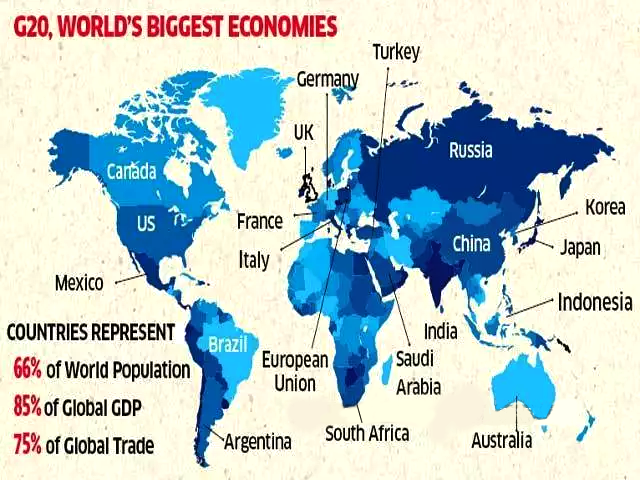31
Oct
G-20 Agriculture Meet 2021
G-20 Agriculture Meet 2021
G20
- About:
- It is an informal group of 19 countries and the European Union (EU), with representatives of the International Monetary Fund and the World Bank.
- It does not have a permanent secretariat or Headquarters.
- The membership comprises a mix of the world’s largest advanced and emerging economies, representing about two-thirds of the world’s population, 85% of global gross domestic product, 80% of global investment and over 75% of global trade.
- It is an informal group of 19 countries and the European Union (EU), with representatives of the International Monetary Fund and the World Bank.
- Members:
- Argentina, Australia, Brazil, Canada, China, France, Germany, India, Indonesia, Italy, Japan, Republic of Korea, Mexico, Russia, Saudi Arabia, South Africa, Turkey, the United Kingdom, the United States and the EU.

Key Points
- Highlights of the Meet:
- Signed a final statement named the “Florence Sustainability Charter”.
- It will strengthen cooperation between G20 members and developing countries on food and agriculture to share knowledge and help developing the internal production capacities best suited to local needs, thus contributing to the resilience and recovery of agriculture and rural communities.
- Reaffirmed their intention to reach the goal of zero hunger, which is also threatened by the consequences of Covid-19.
- Reaffirmed the commitment to achieve food security in the framework of the three dimensions of sustainability: economic, social and environmental.
- Signed a final statement named the “Florence Sustainability Charter”.
- India’s Stand:
- Focus on Traditional Food:
- Emphasised on re-introducing traditional food items including millet, other nutritious cereals, fruits and vegetables, fish, dairy and organic products in the diet of the people.
- Their production has been phenomenal in India in recent years and India is becoming a destination country for healthy food items.
- The United Nations (UN) has accepted India’s proposal and declared 2023 as the International Year of Millets and urged the G20 nations to support the celebration of the millet year to promote nutrition and sustainable agriculture.
- Emphasised on re-introducing traditional food items including millet, other nutritious cereals, fruits and vegetables, fish, dairy and organic products in the diet of the people.
- Biofortified Food:
- Biofortified varieties, which are the source of a staple diet rich in micronutrients, are being promoted to remove malnutrition.
- About 17 such varieties of different crops have been developed and released for cultivation.
- Biofortified varieties, which are the source of a staple diet rich in micronutrients, are being promoted to remove malnutrition.
- Water Resource:
- India has also taken steps to increase the optimal use of water resources, create infrastructure for irrigation, conserve soil fertility with balanced use of fertilizers, and provide connectivity from farms to markets.
- Indian Agri-Sector in Covid:
- Indian agriculture has achieved great success after the country’s independence, and the sector also remained unaffected even during the Covid pandemic.
- India Resolved to:
- Continue working together to achieve the Poverty Reduction’ and ‘Zero Hunger Goal as part of the sustainable development goals.
- Cooperate in research and development as well as exchange of best practices to enhance productivity.
- Focus on Traditional Food:
- Related Indian Initiatives:
- The ‘Per Drop-More Crop’ scheme for irrigation and ‘Paramparagat Krishi Vikas Yojana’ for organic farming is being successfully implemented.
- Pradhan Mantri Fasal Bima Yojana is being implemented to provide insurance cover for the farmers.
- To address the malnutrition problem, India is running the world’s largest food-based safety net programme, which includes the Public Distribution System and the Mid-Day Meal Scheme.
- The government is also providing an annual income support of Rs 6,000 under the Pradhan Mantri Kisan Samman Nidhi (PM-KISAN).
